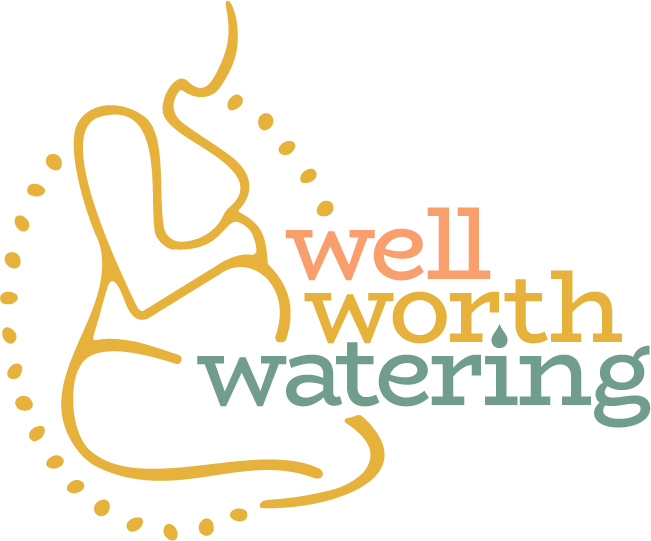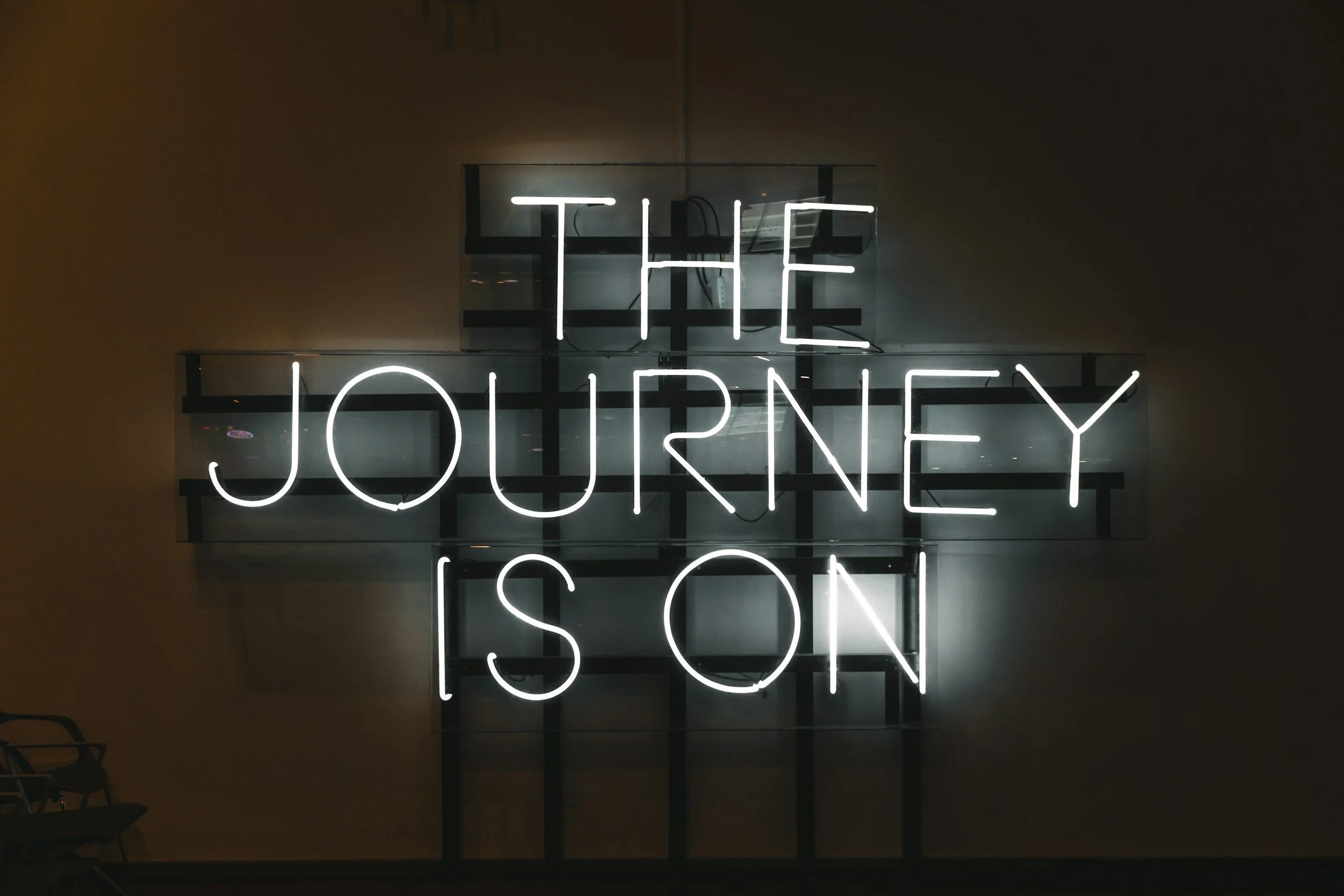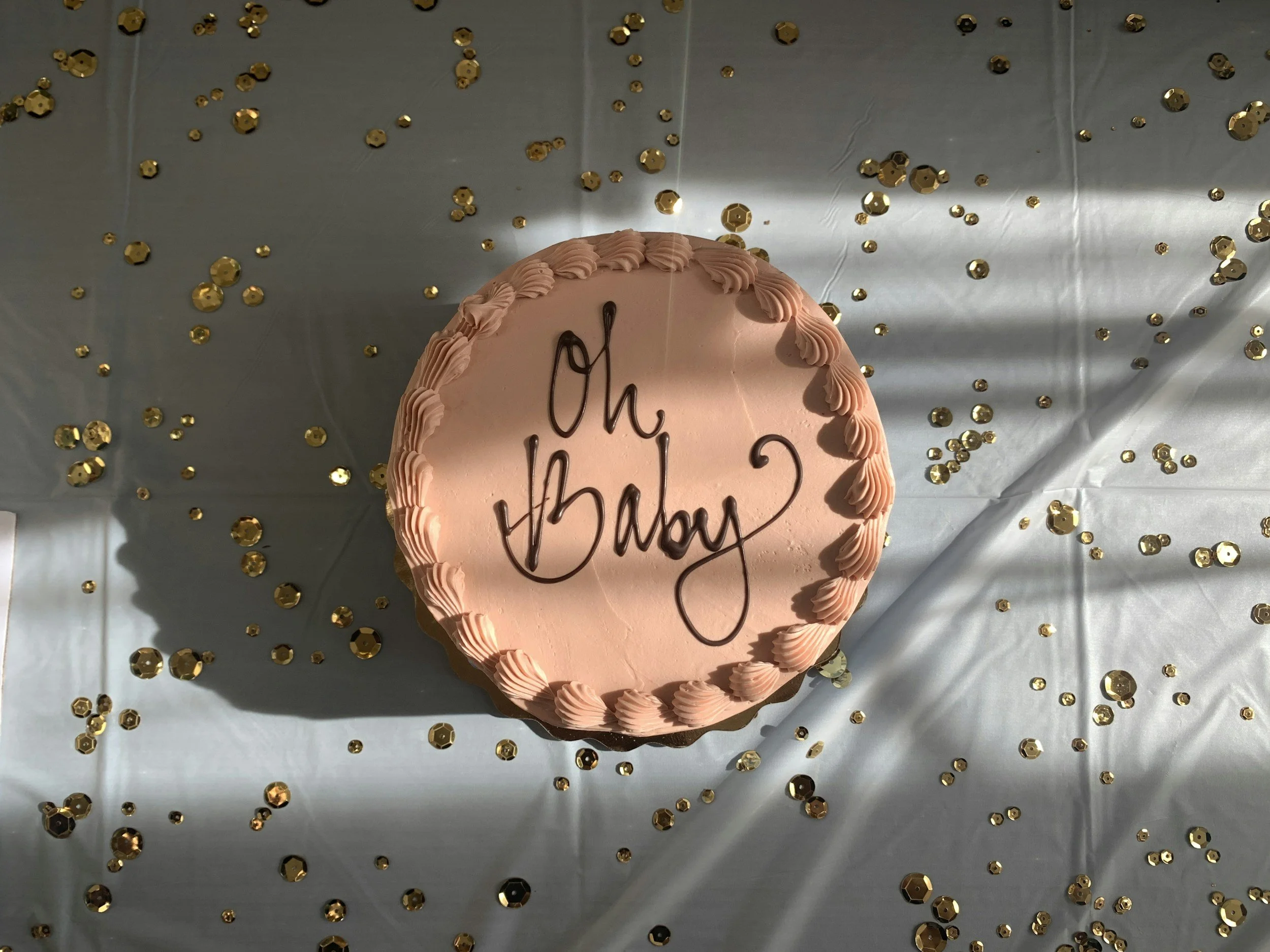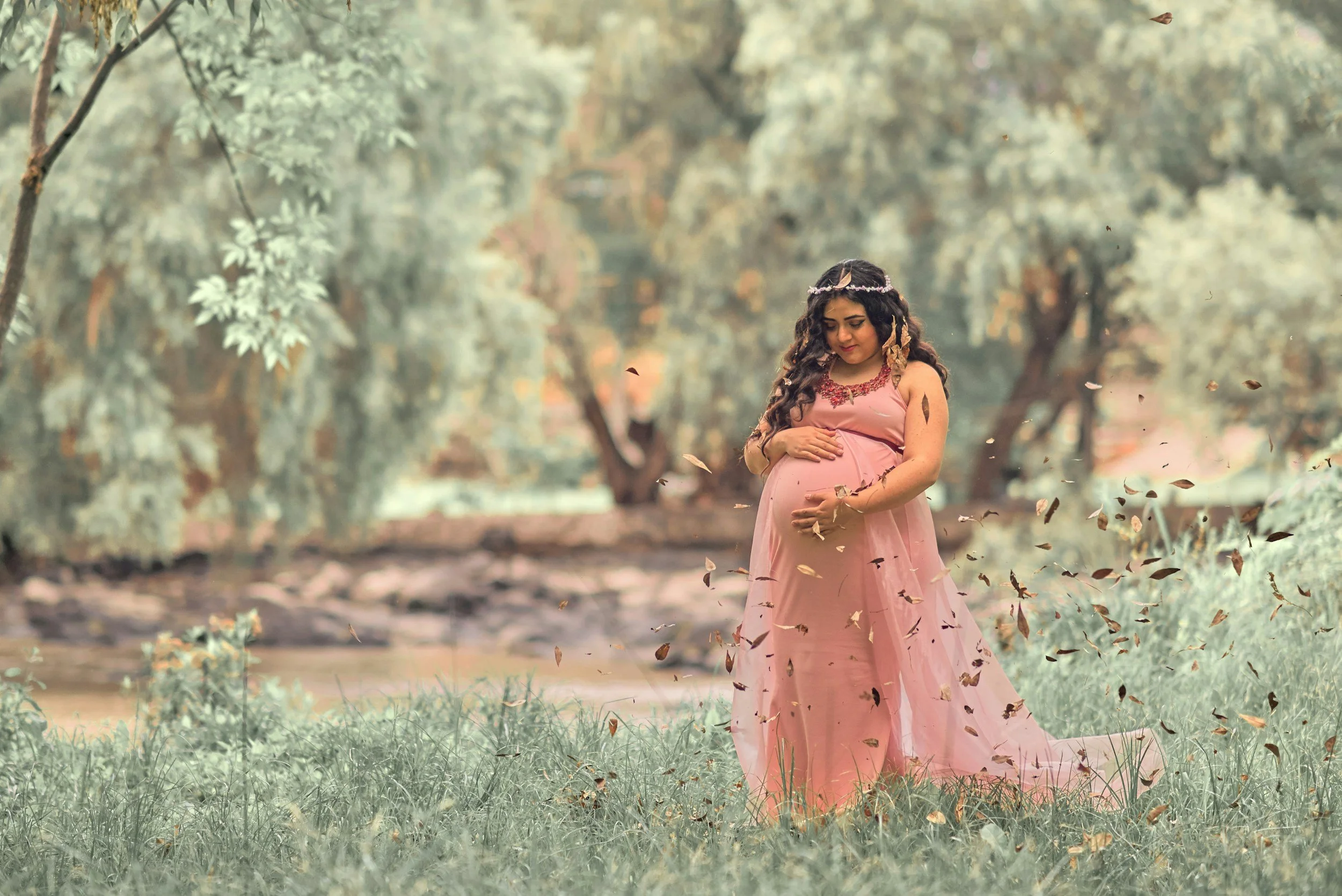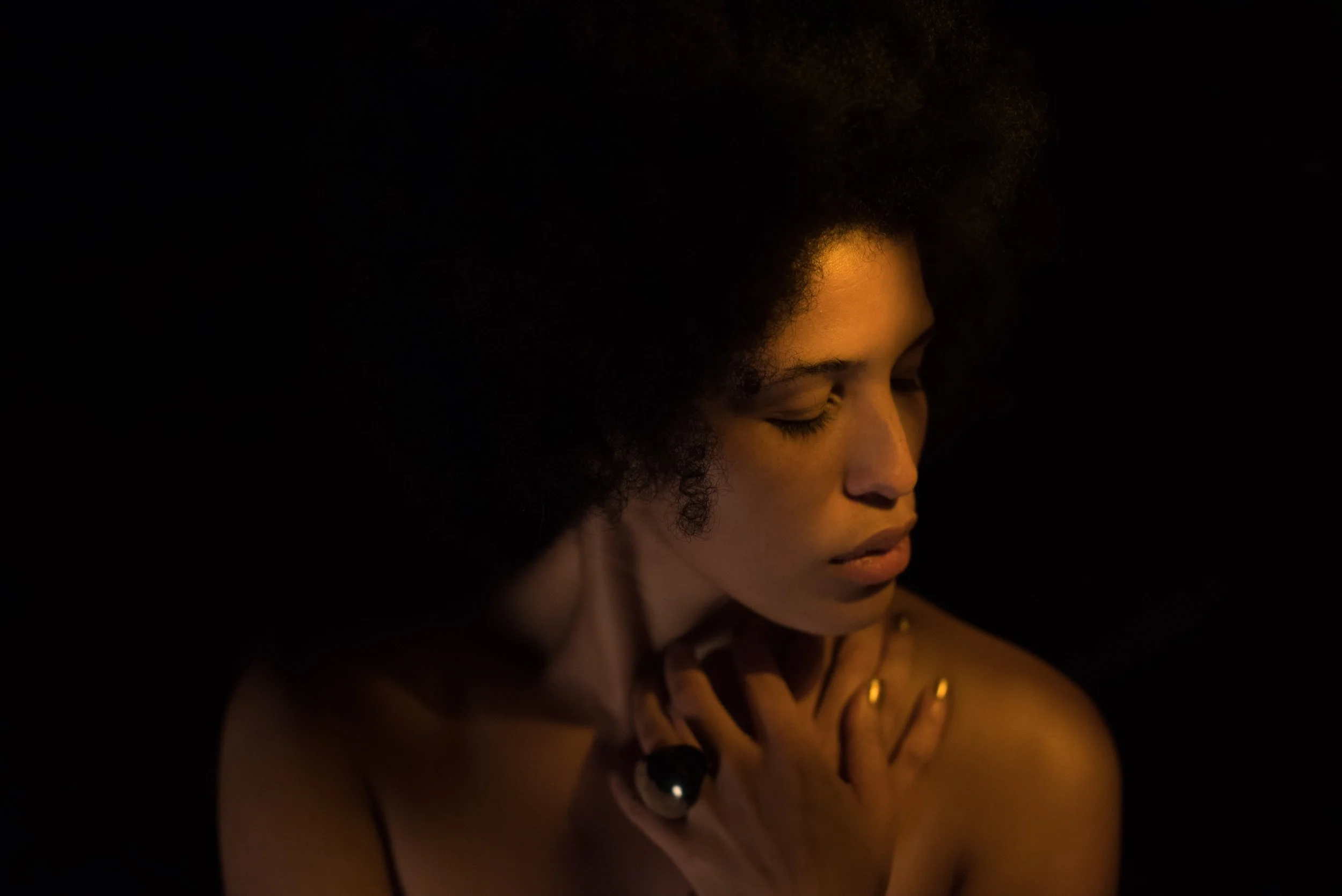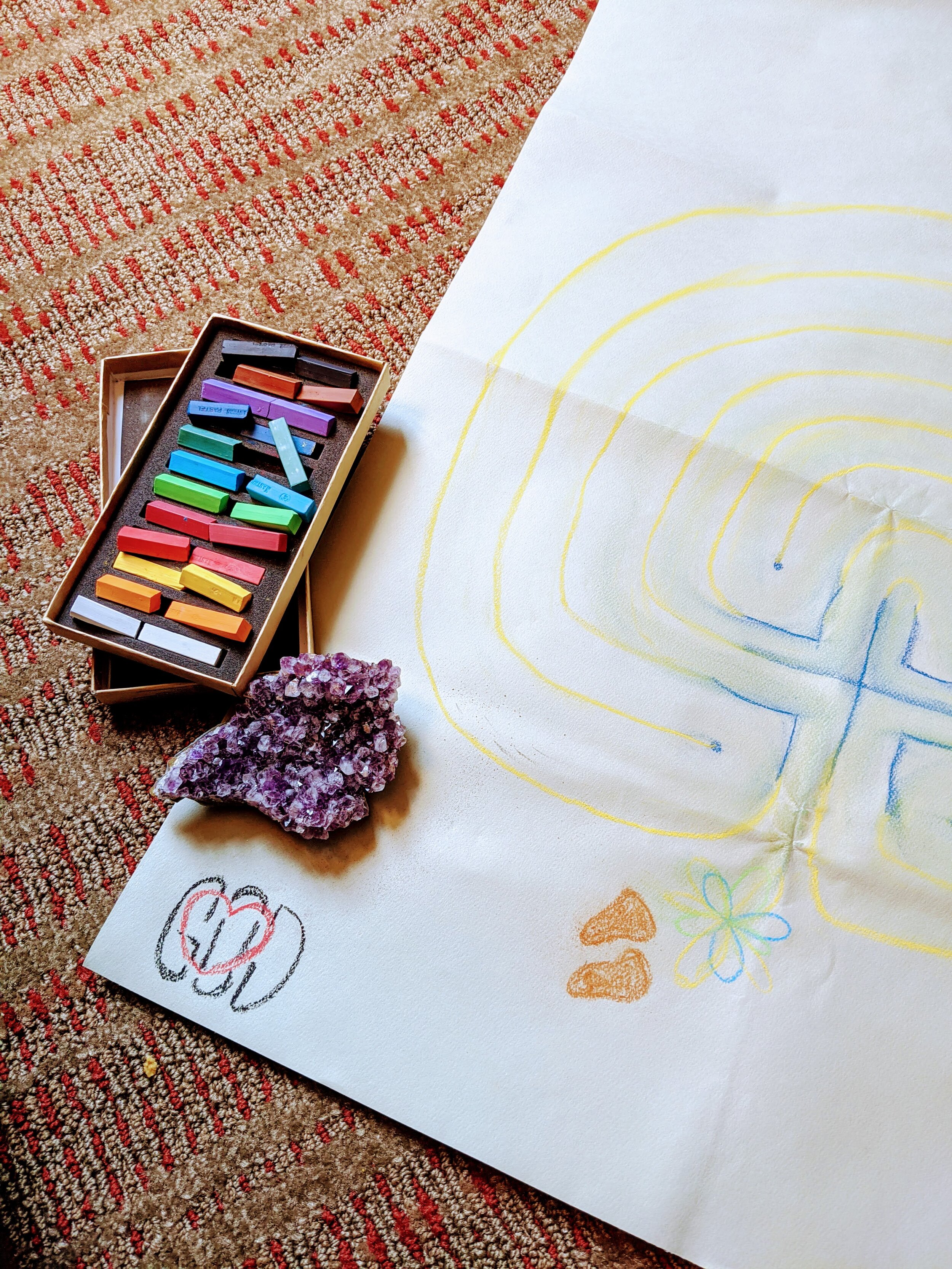Pregnancy, people say, is supposed to be glowing and joyful. And sometimes it is. But for an introverted heart — a thoughtful, sensitive, inward-processing heart — pregnancy can also feel loud. Not outwardly loud, but internally so. Your mind fills with questions. Your body changes faster than your understanding can keep up.
Becoming, Not Just Giving Birth: A New Year Reflection
The childbearing year is a heroic journey—not because it’s perfect, but because it asks something profound of you. Whether you’re preparing for birth, recovering from it, or still making sense of your journey, January offers a tender question: What would it look like to approach this season with compassion for where you are?
At Your Birth Banquet, Judgment is Optional
As you carve the turkey and pass the rolls, consider this: your birth is your feast. You can savor it, honor it, and make decisions that nourish you, without anyone else’s opinions overshadowing the experience. And just like the perfect holiday meal, the best outcomes come when you focus on what fills you up—not what fills someone else’s expectations.
Beyond the Bassinet: Creating a Baby Shower List That Nurtures You
New parents need care, rest, guidance, and nourishment. That’s why I love seeing more families reimagining what a baby registry can be. Instead of filling it only with things for the baby, they’re creating space for support—funds that allow them to hire a lactation professional, take a birth class, or welcome a postpartum companion into their home.
Breathing for Birth Is Vital. But What Does Scripture Have to Say About Breath?
Whether or not you consider yourself religious or spiritual, that picture of breath as something more than just oxygen can be deeply reassuring during birth. Breathing for birth is vital—but it’s also timeless. It’s not just oxygen; it’s alignment. It’s a rhythm that has carried humanity through both ordinary days and extraordinary thresholds for generations.
The Breastfeeding Conversations Not Enough Folks are Having — And How to Find Your Way Through
Breastfeeding struggles are far more common than most people realize, and talking about them is one of the best ways to ensure families get the support they deserve. Here are some of the rarely-discussed realities of breastfeeding, along with ways to navigate them while keeping the heart of the feeding relationship intact.
“When Can We See The Baby?” The Introvert’s Guide to Managing Home Visitors
Establishing clear guidelines for home visits after childbirth can help protect your tranquility while allowing loved ones to partake in your joy—just on your terms. Here are some thoughtful steps to assist you in setting boundaries that respect your need for rest and recovery during the sacred first 40 days after childbirth.
4 Benefits of Birth Classes for First-Time Parents
Birth classes are valuable for building knowledge, confidence, and a support network as you approach your due date. Let’s explore some of the key benefits these classes offer to first-time parents and how personalized birth classes can make your experience even more rewarding.
3 Ways to Support Black Maternal Health Year Round
As we celebrate Black Maternal Health Week, it's crucial to acknowledge that supporting improved maternal health outcomes for Black mothers is not merely a week-long endeavor—it's a continuous, year-round commitment.
Demystifying Pregnancy Mask
Also known as chloasma or melasma gravidarum, pregnancy mask is a skin condition characterized by the development of brownish or grayish patches on the face, typically on the cheeks, forehead, nose, and upper lip. These patches are often irregular in shape and vary in size. Chloasma tends to affect melanated people at a higher rate.
What was THAT?! All About the Mucus Plug
A mucus plug is similar to vaginal discharge in consistency and makeup, but it’s much thicker, denser and there’s a lot of it…which makes sense because it’s designed to protect your baby from any harmful material that might enter the uterus.
What Does It Take to Strengthen The Postpartum Body?
Thinking back to my healing experience with diastatsis recti, a very sore psoas muscle and weak core muscles, I now understand the amount of compassion one needs to not only look at their postpartum bodies with appreciation, but to be curious about what this new body needs. I delved into this issue even deeper during a recent conversation with Dominique Quarles on the podcast.
I'm Pregnant. Should I Add Okra to My Plate?
Whether you’re aiming for a smooth delivery or simply a nutritious start for you and your growing baby, okra is an MVP in the building of a strong birthing body. Nutritious and rich in vitamins, minerals, and fiber, okra is often used in traditional medicine and it has been suggested that it may have benefits for pregnant people as well.
I've Got a Podcast! Listen now on Anchor
After months of telling myself it wasn’t worth it—a direct contradiction to what I want this platform to stand for—I decided to supplement my writing with a podcast!
On My Path to Becoming a Childbirth Educator
I literally crossed a threshold into a new way of being, thinking and moving in this world. And it was right on time. This Fall, I will officially begin training to become a childbirth educator with Birthing from Within, an organization committed to honoring the sacred in birth experiences.
She Insisted: Vigilance & Postpartum Preeclampsia
Her vigilance was with her over the years, even as she supported my postpartum recovery. Days after delivering my daughter, it was my mother who noticed I wasn’t feeling well. She ended up ringing the alarm for me when I couldn’t recognize that I may have been at risk for blood pressure complications of my own.
Finding Gems in an Anxious Place
On a regular day, I can second guess and worry myself into oblivion. But the uncertainty of The Rona and all the chaos she has brought with her? It’s turned the heat all the way up on my anxiety. And as much as I might tell myself that I am, I know I’m not alone.
Postpartum Physical Therapy: My Diastasis Story
The quality of postpartum life is critical to the well-being of new mothers and babies. Most new mothers will struggle with their new bodies and feel the pressure of “snap back” culture. But we have to be gentle with our bodies. Flooding the postpartum narrative with more conversations about our real rehabilitative needs after delivery is a wonderful start.
Birth Trauma and the Black Birth Narrative
How do we protect our narrative and stop it from becoming the medical systems’ tool for fear mongering? And how do we do this while honoring those who have been harmed? These are not simple questions. But we can all play a role in the answers.
The Lady: A Throwback for Mother's Day
This lady’s face, her voice, her smile and even her scent likely connected him to a mother he’d already bonded with by the time he was my age. For him it was a reunion. For me it was an introduction to a benevolent stranger. I didn’t know this woman.
